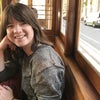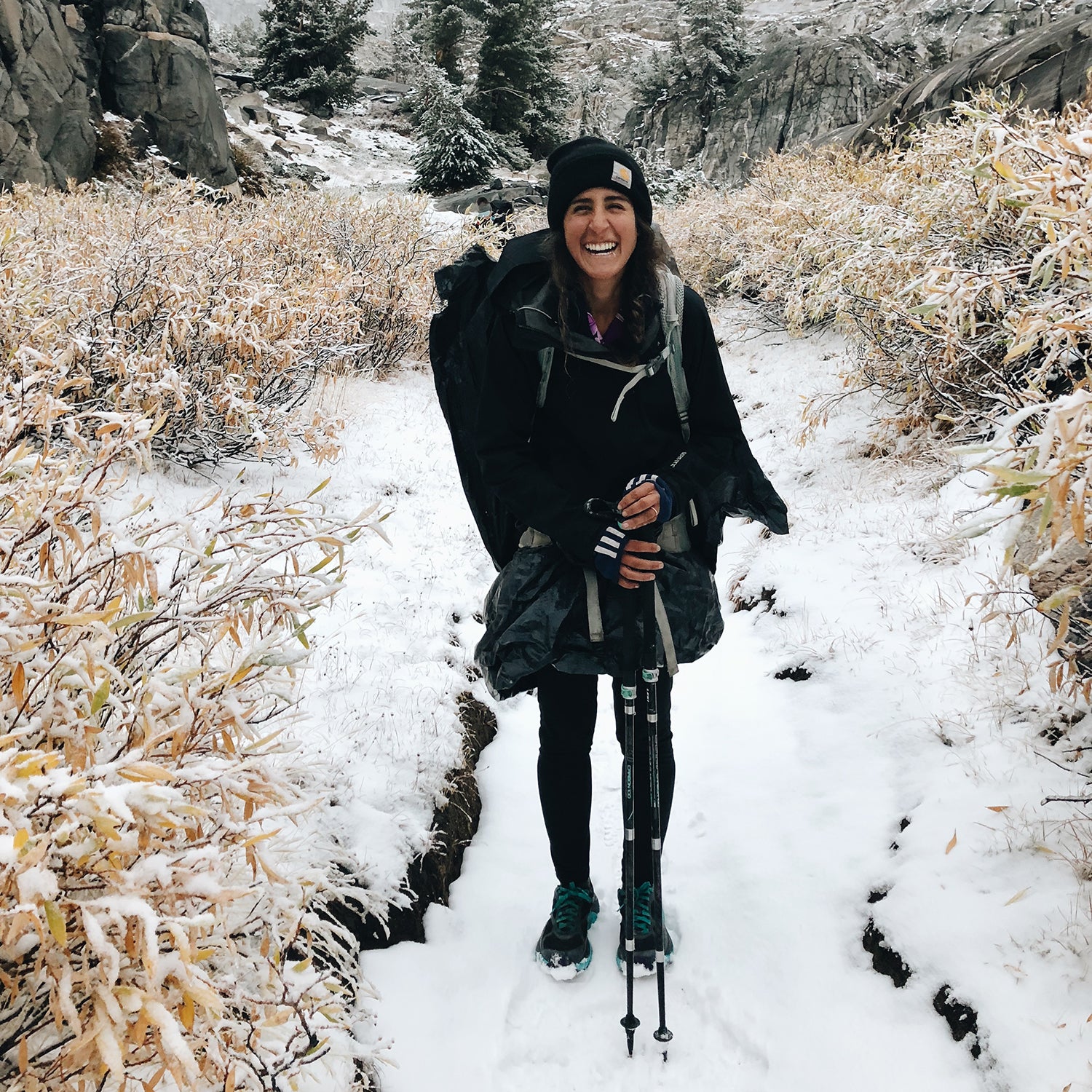It was during her first solo backpacking trip in 2017 that Grizel realized how far she’d come, and how ready she was for change. The then 26-year-old mental health therapist (who goes by her first name professionally) was on an eight-day hike on California’s High Sierra Trail when a violent storm hit in the middle of the night. It rained and hailed like nothing she’d seen before—and she’d grown up in Miami.
Until she went on that trip, Grizel had been a self-described timid person and casual hiker. But after surviving a sexual assault earlier in the year, she set her mind on a solo hike, hoping the experience would be empowering and transformative. “You think you’re going to die,” she says of the aftermath of the assault. “I wanted to make sure that everything I did had more purpose and meaning.” So she flew from her home in Tennessee to Las Vegas, hitchhiked to Yosemite, and spent a week on the trail feeling scared and alone. After enduring the storm and climbing Mount Whitney the next day, she realized she wasn’t afraid anymore. “I remember laughing to myself,” she says. “I was like, if this is it, then I’m fine. Ever since then, I’ve been trusting myself.”
Before the trip, Grizel was struggling with nearly every aspect of her life—her belief in Christianity, a series of bad relationships, the office she worked in—but fear of letting others down had prevented her from making any big changes. After returning from the High Sierra Trail, Grizel was determined to trust her gut. She quit her job and adopted a dog named Rue. In the years that followed, she through-hiked the Appalachian and Pacific Crest Trails, traveled the country in a Ford Transit van called Arthur, and gradually attracted . Now 29, Grizel has established a successful brand, carving out a social media niche by sharing mental health resources and personal reflections. She supports herself by working with companies like REI and Backcountry, writing stories and producing sponsored content. She also hosts , a new podcast that features conversations with other outdoorspeople on such topics as racism and anxiety.
Recently, other prominent adventure athletes have opened up about their mental health battles. Through-hiker Heather Anderson wrote about her off-trail depression. Ultrarunner Rob Krar revealed his lifelong struggle with depression (and now hosts camps that attract runners facing similar challenges). What sets Grizel apart is her desire to address a wide spectrum of mental health conditions, and to add nuance to the promise of working through them outdoors. While many publications, ���ϳԹ��� included, tout nature’s positive effects on people with anxiety, depression, and PTSD, Grizel considers those issues messier than they’re often portrayed. She worries that presenting outdoor recreation as a quick fix can be misleading.
To highlight that, Grizel draws on personal experience, including her own battle with chronic depression. After moving from Florida to east Tennessee in high school, she fell in love with hiking in the Blue Ridge Mountains. “In the outdoors, I always felt a little bit better, but I was never able to pinpoint why,” she says.
More recently, she learned that a life lived mostly outside, while at times blissful, isn’t a cure-all. During her AT hike in 2019, she struggled with depression, then with guilt about having those feelings while immersed in nature. “Everyone around me very much expressed, ‘This is the best thing ever,’ she says. “I had four days where it was just depression, sadness, tearfulness. It’s extremely isolating.” When she finally confessed how she was feeling to a fellow hiker, the friend was distracted by her phone. “People are like, ‘Wow, that sucks.’ And that’s the end of it,” Grizel says.
Grizel has this innate ability to see her story reflected in others without taking away from their story,” says Gale Straub, cofounder of Ravel Media.
With her growing platform, Grizel hopes to model a more compassionate approach to these important on-trail conversations. “The outdoors is such a healing space, but it only takes one person to fuck it up,” she says. “If I can make a difference to that one person and tell them how to listen or be present, then I did a good job.”
On and , Grizel Caminas, she tends toward traditional outdoor content—travel recaps, suggestions on building out a van. She gets more personal on , posting reflections about panic attacks or self-worth between odes to her dogs and advice on avoiding giardia. She’s careful not to present tidy mental health tips or I’m-all-better-now sentiments. “I can’t tell you how many times I get, ‘Wow, I never would’ve guessed you struggle with depression—you seem so happy,’” she wrote in one Instagram caption. “And my answer to you: ‘YES, I am fucking happy. But also, I’m fucking sad too. There is space for both.’”
With Underneath It All, Grizel uses her experience as a therapist to dive even more deeply into these topics. “Grizel has this innate ability to see her story reflected in others without taking away from their story,” says Gale Straub, cofounder of , which produces the podcast. In a with through-hiker Will Robinson, Grizel stepped back to hear his experiences as an Army veteran and a Black man, but also shared her own stories when she discovered ways their mental health backgrounds intersected. “When my depression is bad, I want to isolate from other people, because I don’t want to hurt anybody,” she told Robinson. “I know exactly what you’re saying,” he replied. “When I’m at my darkest moments, I feel like my depression is contagious.”
Grizel had plans to tackle the Continental Divide Trail this year. The pandemic put that dream on hold, along with #vanlife in general. When we spoke—on Zoom, naturally—she was renting an apartment in Utah. Although opportunities to share travel stories were suddenly limited, Grizel’s following only increased in 2020, perhaps because mental health issues are more relevant than ever. “I think people got stuck with themselves and had to face themselves over the past few months,” she says.
Grizel’s long-term goal is to run workplace emotional training and retreats for outdoor companies. She knows that building an Instagram following helps her gain traction in the industry, but she also acknowledges that the platform’s tendency to reflect only the happy part of people’s lives can be unhealthy. She combats that with raw honesty, a refreshing alternative during the trials of COVID-19. “I’ve said it a million times—it’s okay not to be okay,” she wrote in an April post. “Whatever you’re feeling is valid, and I want to help make sense of what I can.”


